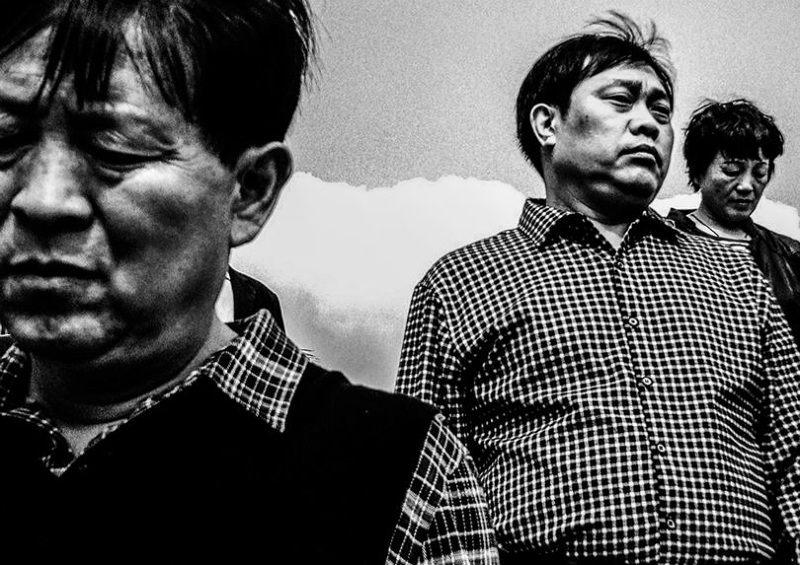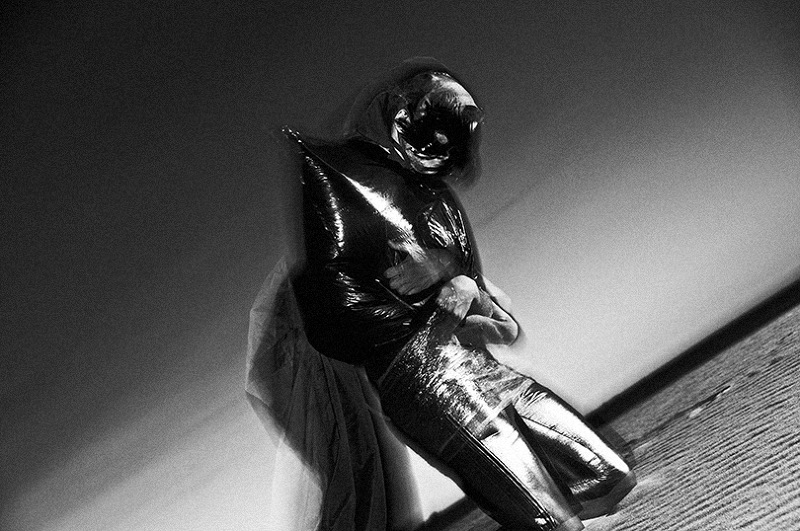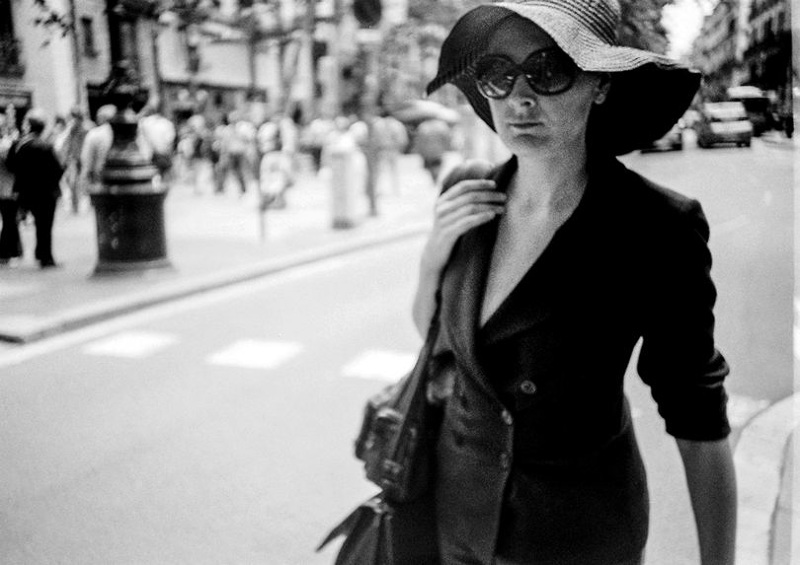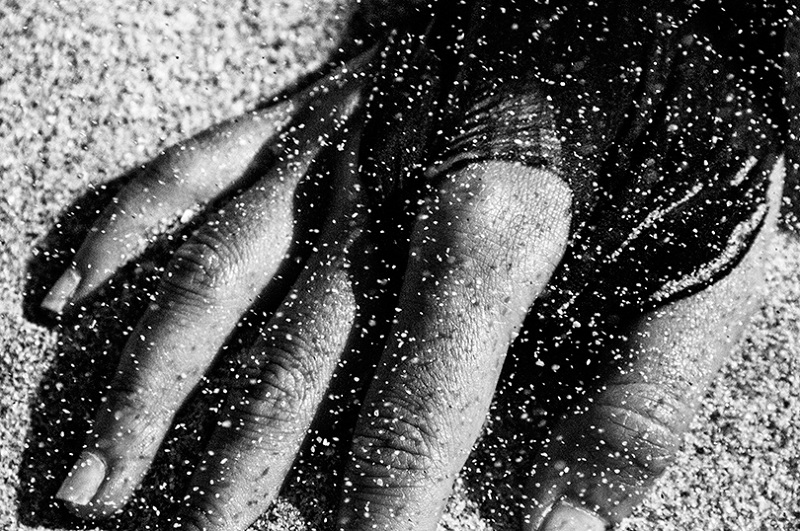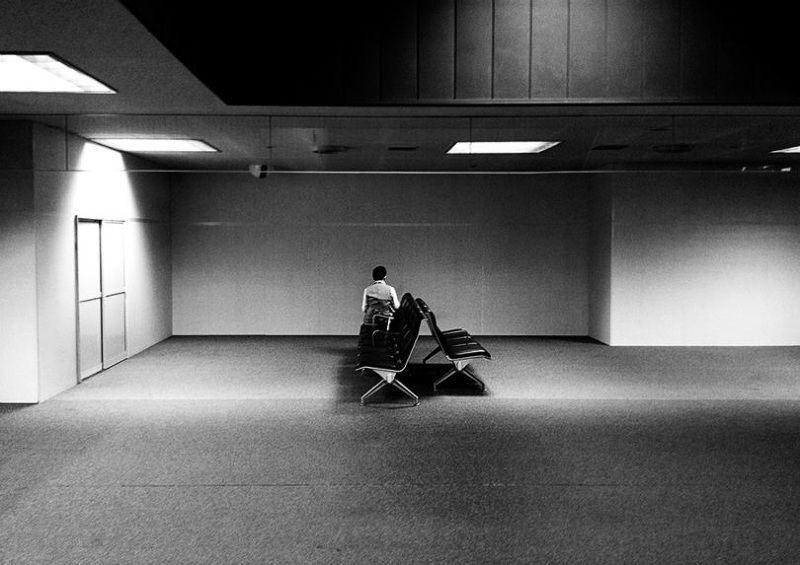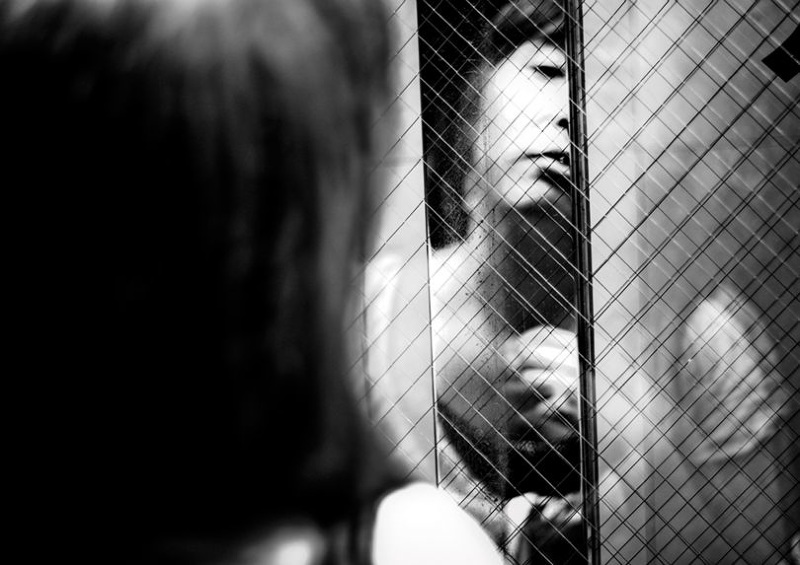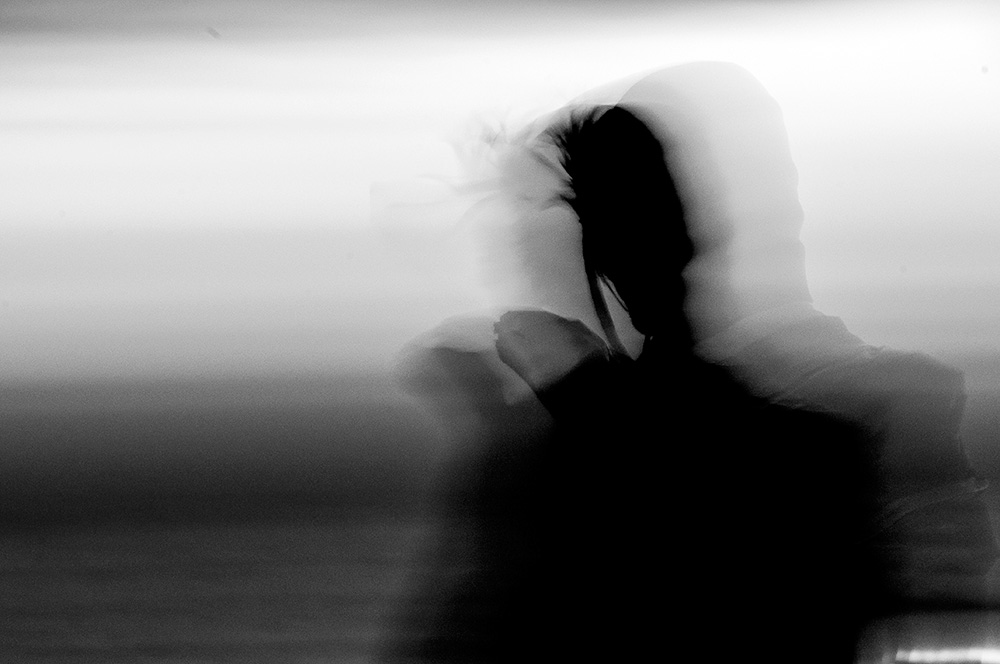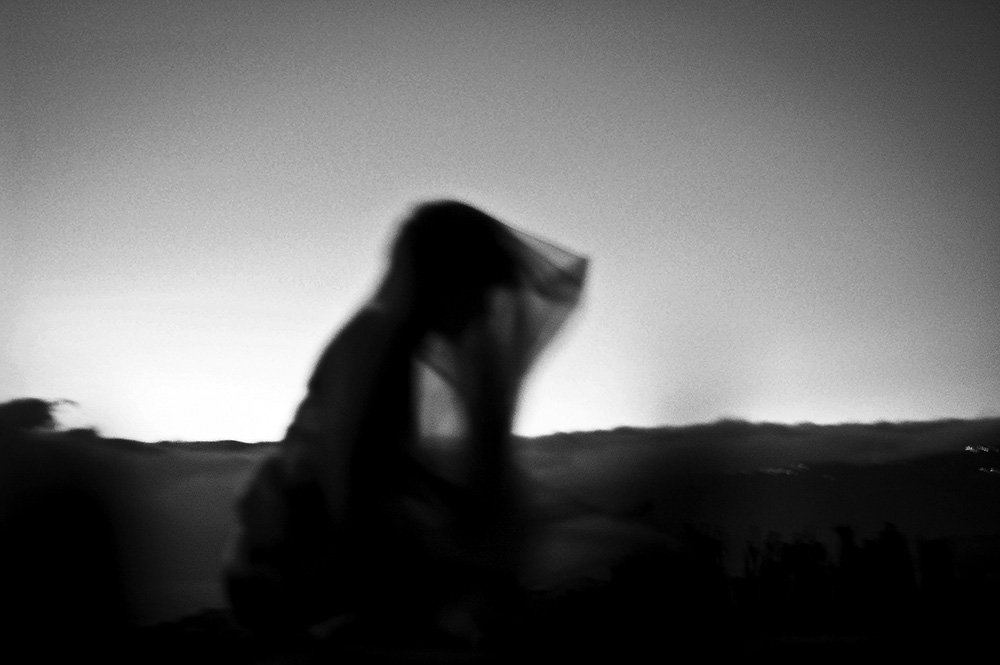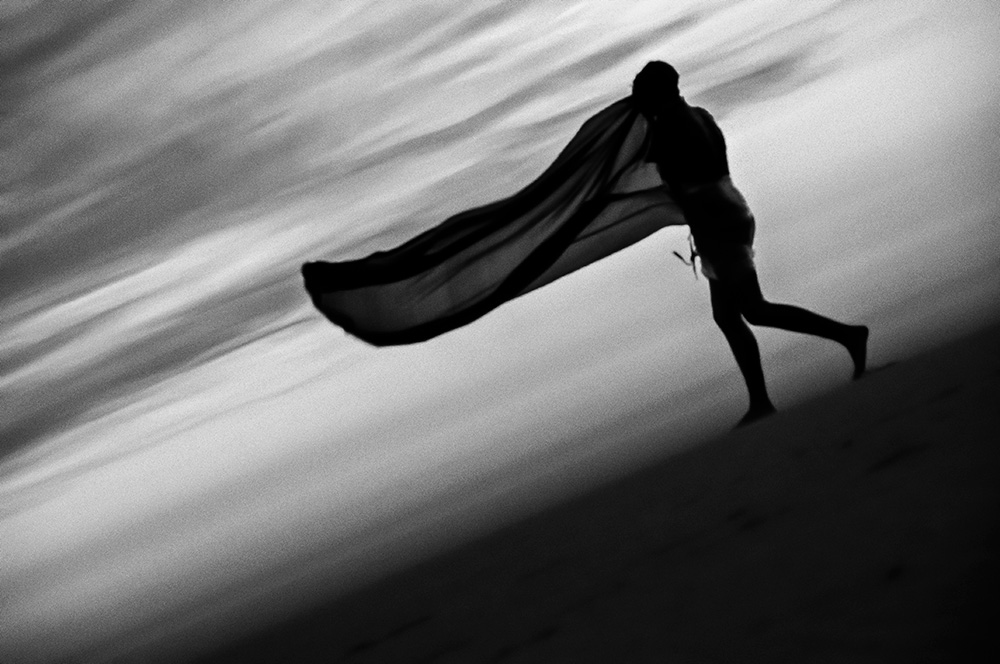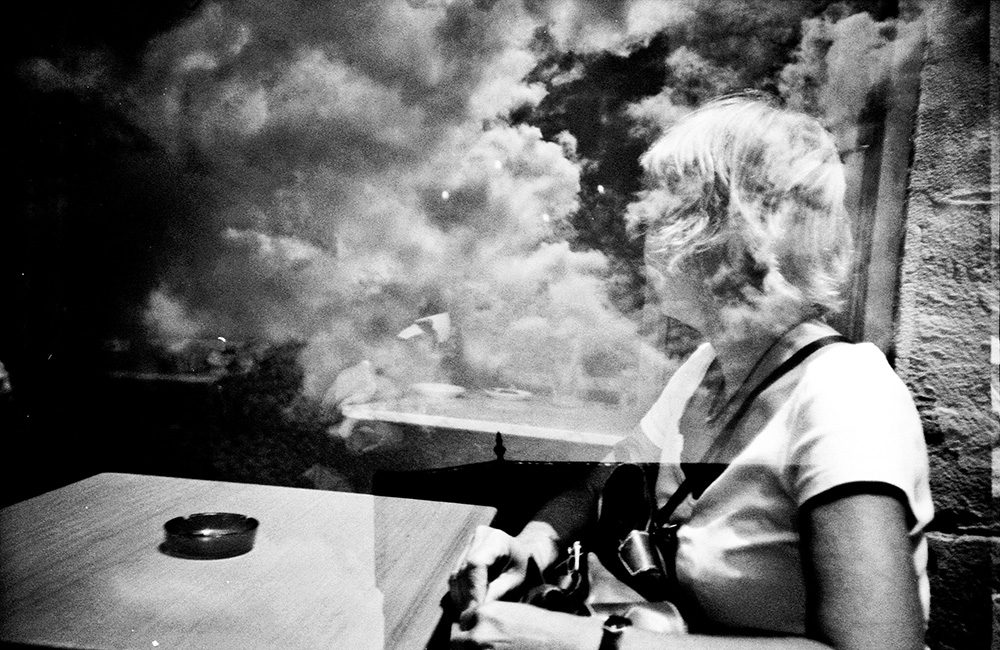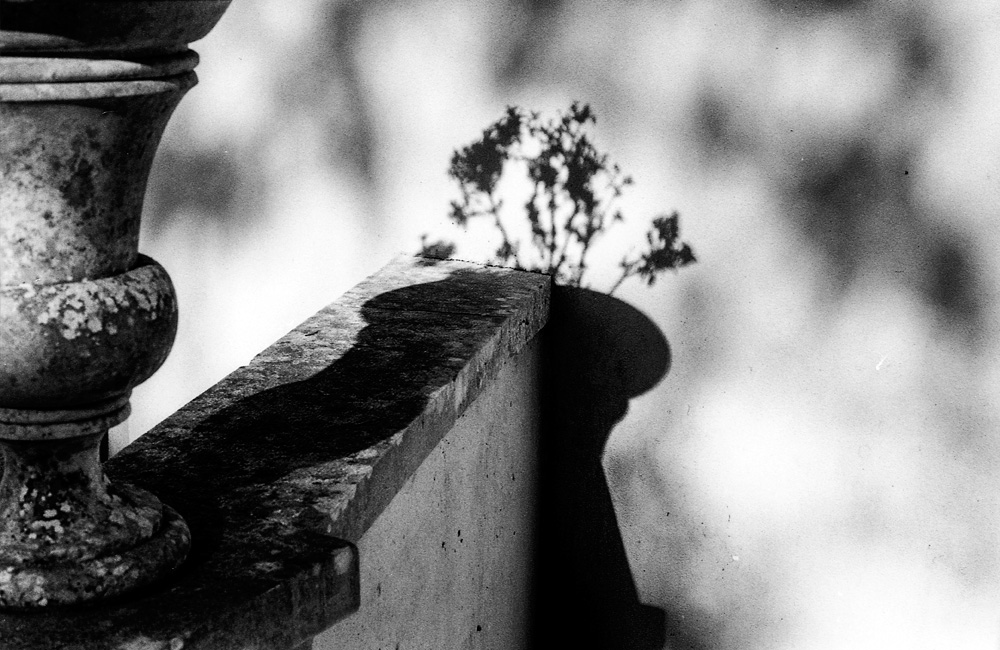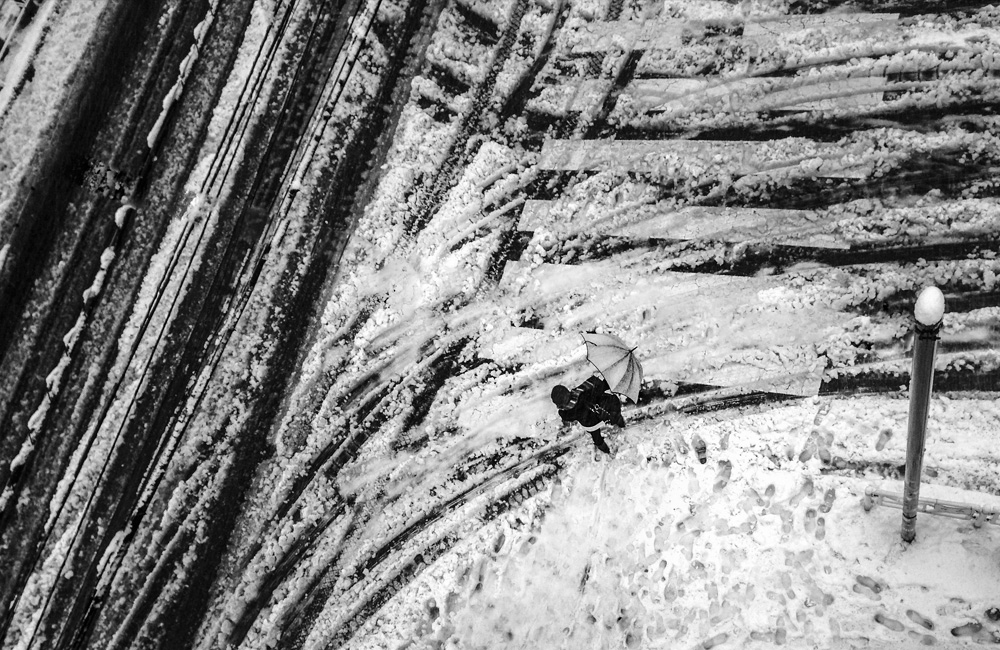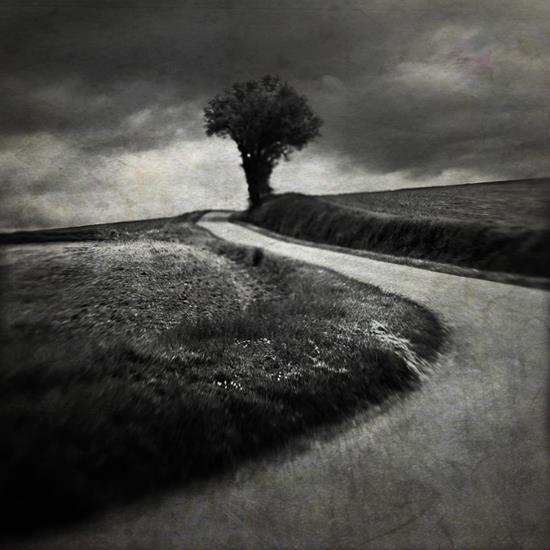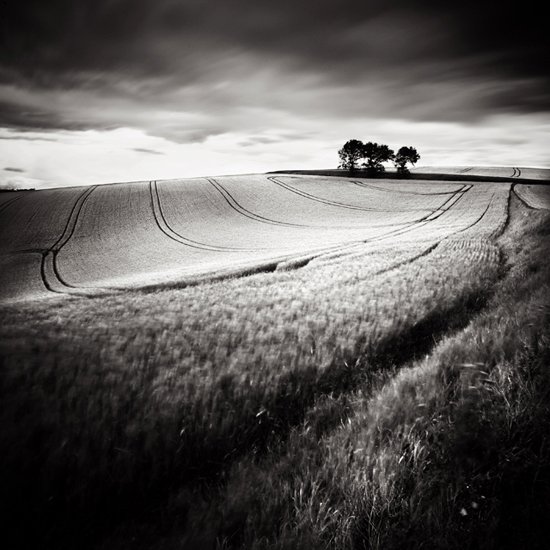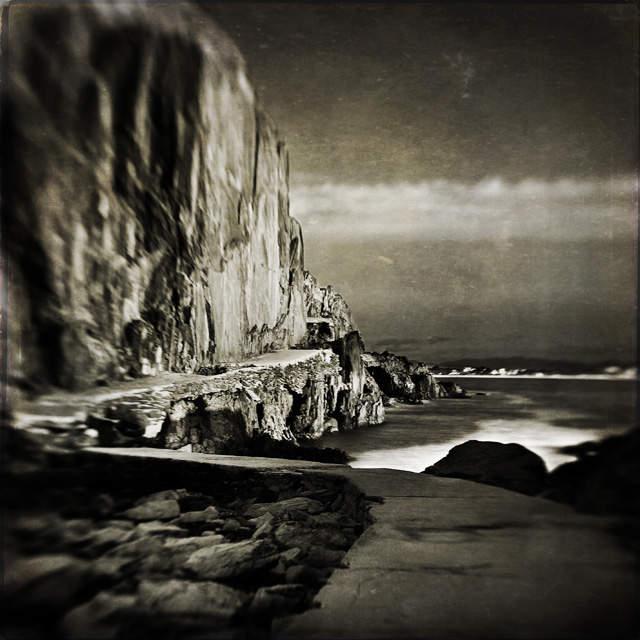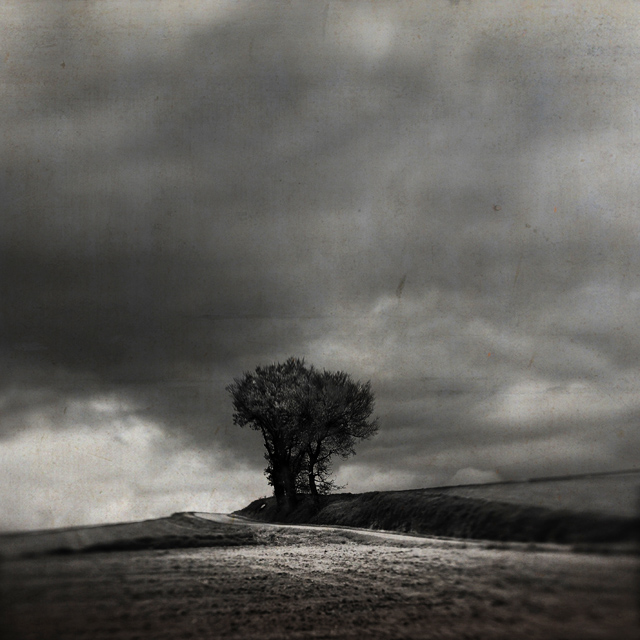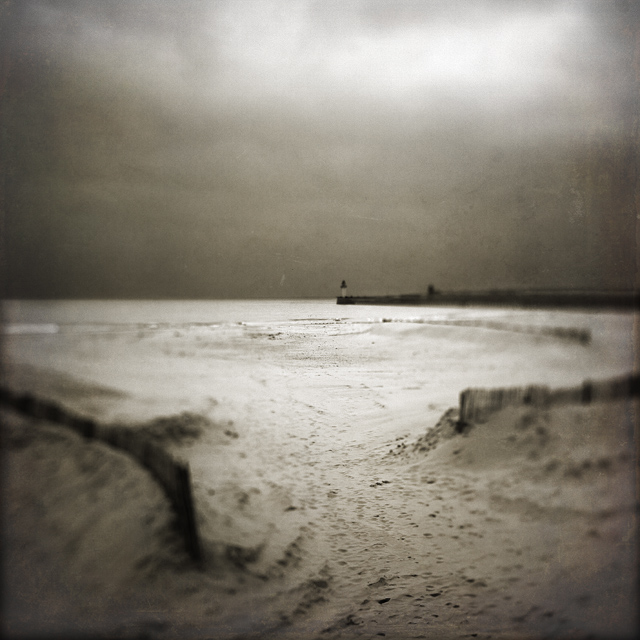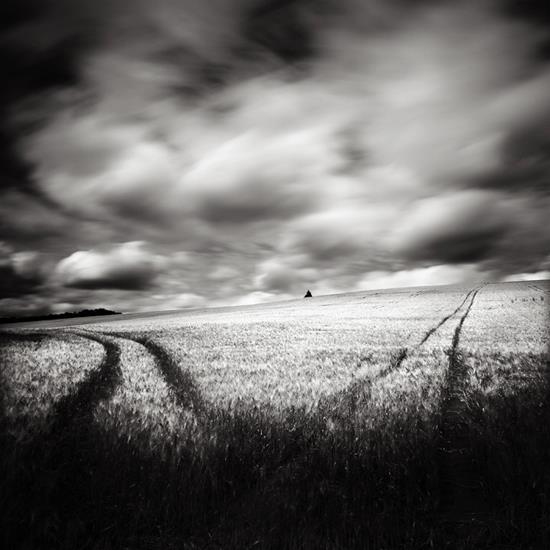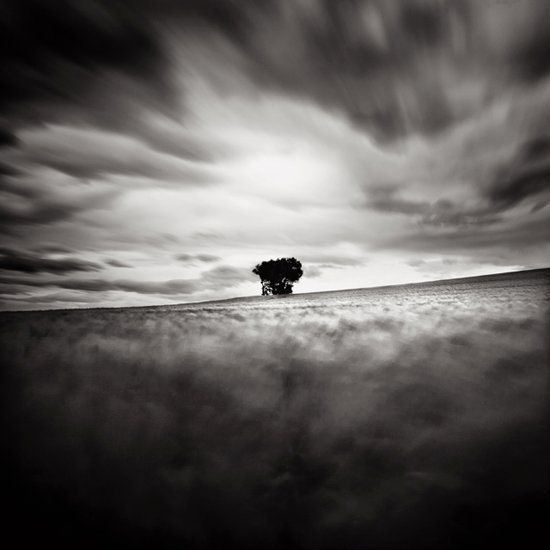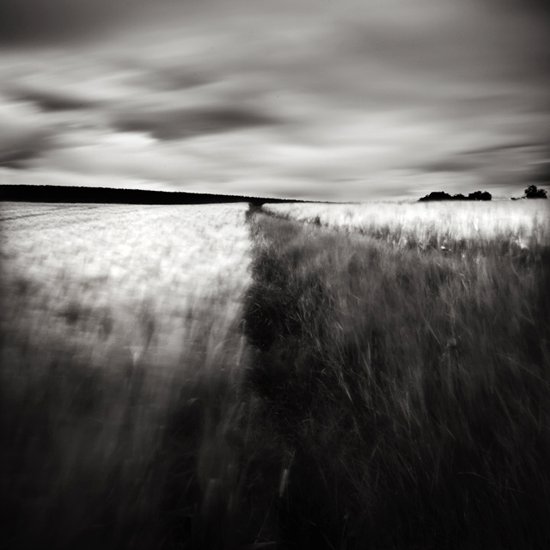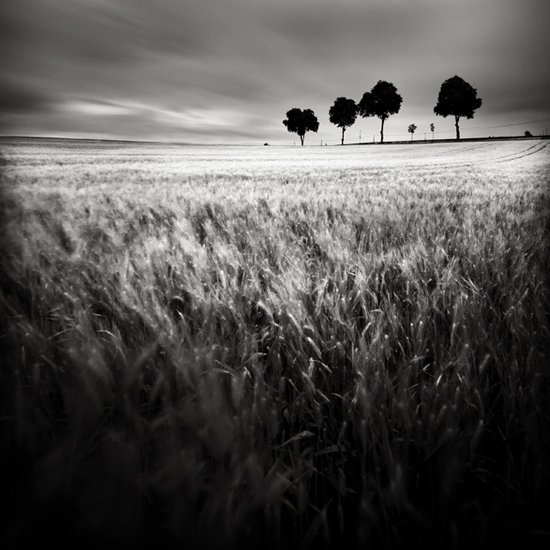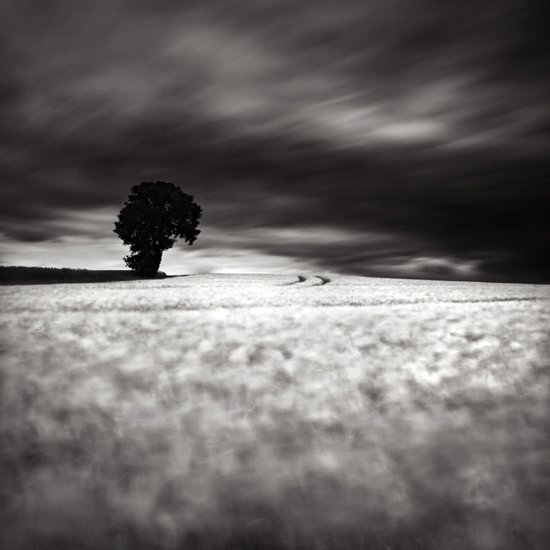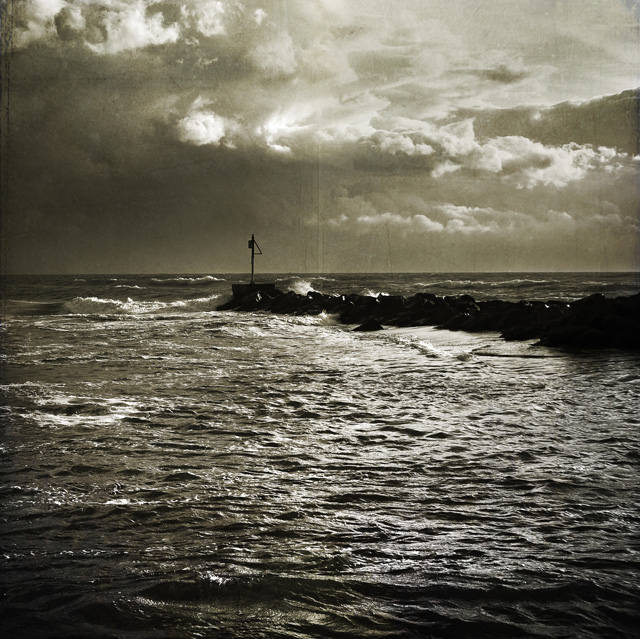06
2016
How did you discover photography? Tell us a little bit about yourself and your influences.
Since a young age I’ve always been interested in solitary activities: reading, listening to music, watching cinema, writing, walking… Photography just happens to be something you do on your own so at some point I started using this medium to document what was around me: first music, then relationships, travelling, and in the last years the work has gain different counters being more centered in inner experiences and the way photography can be used as a gateway for the psyche and analyzing thoughts.
What does photography mean to you?
I guess the same as for you. Or perhaps, it means less to me than the average person because the choice of working with this medium was rather random, or by force of accident. What I mean to say is that I could be using any other medium to talk about the ideas I’m working with, and sometimes I do that, sometimes I use painting and collage. I’ve said this numerous times before but I’m rather more interested in ideas than the medium those ideas use to come across.
How do you find inspiration?
I’m not a big fan of the word inspiration. I believe that if one works with art and creative endeavors we are bound to know sooner than later that ideas come from working and experimenting a lot, or at least leaving the work aside and having an active imagination rolling all the time. I can’t say I don’t have references, because I do. I keep collecting old paintings, photos, stamps, engravings, postcards, and other objects that resonate with me or are close with the topics I work with. I’m not sure if those things help shape the way my pictures come to be, but I strongly believe the references and things we choose to see and do have an impact and help creating an atmosphere for new things to emerge.
Which style of photography do you like the most, and why?
Style I guess is more about creating an artificially induced reality (as in commercial/fashion photography) and I’m looking to work within a different set of rules. Maybe we can address this question as “visual language” and if I had to put in a box my visual expression is about that which is not in the frame. Rather about what is “behind the image”. I mean, I’m interested in exploring the human condition and the unintelligible things we all think about but can’t really express so well. Some people call it “conceptual” photography, not sure if I feel comfortable with that either but it gets close to a description.
I’m not much interested in what is being done in photography nowadays. I think it lacks a sense of narrative and authorship. I think there’s too many people shooting and very little people with good ideas. I tend to prefer more intimate art in general and Photography nowadays seems to bore the hell out of me. Therefore, I happen to research more in Performance, Painting, Sculpture and Cinema…
What is the one most important lesson that you have learned since you started taking photographs?
To look for a personal language and work within those boundaries.
When you look at a photograph, how do you decide if it is a ´good´ piece of work?
It takes a long time to arrive at that decision and only in retrospect can I understand if it’s really good. When I’m working on a series I try to stay enough time with a set of selected photos – minimum one to two years – to see if the pictures still resonate and speak to me in some way. It’s a kind of relationship I have with those images. The pictures that are not useful quickly loose their sense of narrative and interest or become redundant and that’s how I discard them. The editing process is the most difficult and laborious aspect of working with photography.
What was the most challenging photograph that you have ever taken, and why?
I don’t know what you mean by challenging… I’m not diving into trenches. I think a work can be challenging if it makes your mind active; it if makes you start questioning things – and things not exclusive about the piece itself. For me those are challenging pieces. If I just happen to look at something and feel no expression perhaps I shouldn’t be seeing that at all.
What kind of equipment (camera body, lens, filters, flash, tripod, cleaning equipment other) do you use?
Equipment is not so relevant to me but at the moment I’ve been working mostly with a Canon EOS3 with an 85mm f/1.2 lens and a Pentax K1000 with a 50mm f/1.2 lens. I also have a digital Nikon camera with 3 lens I use mostly for test shots, an old Ricoh Auto Half and a Lomo LC-A+.
I have a few other cameras lying around but they just happen to be used very randomly.
What do you like and dislike about your equipment, specially your camera, and how would you improve it?
I really don’t think much about equipment or invest too much in it, usually it’s the idea behind the picture(s) and that’s the driving force to research and which then leads me to produce images. The cameras are just tools serving a specific function and I can’t really like or dislike them for what they are as objects. If the camera doesn’t “fit” me of course I will not use it and the most curious of all things is that most of the cameras I mentioned earlier were actually passed over to me by relatives so I never set out to buy them in the first place. Sorry but I really can’t indulge in a serious “gear talk” because I don’t have so much knowledge of it.
What is your favourite lens, and why?
I really like the Pentax 50mm f/1.2, it’s got a wonderful bokeh effect and even though it’s not easy to get to the sweet spot I like that because it forces me to go slower and appreciate the moment.
When you travel, what is in your essential photographic kit bag?
I tend to bring either one or two cameras for all travels. One which can be portable and hassle free – that is usually the Lomo LC-A – and the other might be either the Pentax or the Canon. Apart from that, carrying a book to read is essential as well as a notebook to write thoughts and sketch what I see.
What kind of software/tools do you use for post-processing, if any?
These days I’m not working in the darkroom so actually I’m having a good time by exploring unorthodox approaches to editing: like getting the negatives from the lab, scanning them and then re-photographing as either new pictures or double exposures. The other day I was actually painting on top of pictures and doing collages. I like this aspect of the image growing by itself and evolving into something you can’t control so much. I also find myself drawing images similar with what I intend to photograph (or the other way around). I think it’s interesting if you keep insisting on a topic or set of images for a long time because eventually something will emerge that is far more interesting and with an energy of its own – than what you set out to do in the first place. As for digital post-processing I use mostly Photoshop, but there’s minimum chance for accidents there so it’s not as fun.
How long have you been taking photographs? How do you find inspiration? How do you take your pictures?
1) At least for the last 17 years or so. I started taking photos as a way of documenting ideas and also because I felt it was liberating. I am not a commercial photographer and for that reason I don’t shoot that much. I think that gives me freedom to be honest and do what I please without having to make much compromises.
2) I don’t set to “find” inspiration, what happens when I work with photography is that themes seem to be somehow inter-connected with my own life: context, relationships, books and films I’m watching, sense of space, and of course interests in general, so I just work that through photography and what comes out happens to propel the next piece of work and so on. I see “inspiration” more or less has a chance to pursue an emotional process and in the end that’s just work.
3) The way I approach photography differs from project to project. In the case of my latest series “ZONA”, I worked from a storyboard and based on very controlled/theatrical ideas. In the case of the series “State of Mind” everything came together while I was organizing my archives and noticed there was a visual pattern in all the photos I was taking while travelling, so that idea was the driving force to question myself why was I doing that and think of it as a whole. I really can’t formulate a method of work since it changes and evolves through time.
What goal are you working towards within your photography and when will you know you have reached it?
At the present moment I feel I’m using photography as a self-analysis tool and for exploring topics related with relationships, identity, archetypes and the unconscious. I use it as a cathartic experience and to make me question different personal topics. I don’t have any goal or will to achieve anything with what I’m doing but of course I have a sense on what I wish to do next.
Looking at your own work, which piece is your favourite? Why?
You know how it goes, every artist will say their current work is the best one so far, right?
I’ve been exploring more and more about how to use the body to express changes/shifts in the psyche and how we can physically represent thoughts, emotions, dreams and inward experiences through the body using minimal symbolic elements. This is the topic of my ongoing research and therefore my favorite images are now emerging into something that will hopefully become a new series of photos.
Does your work fit into any one or more distinct genres (nature, landscape, long-exposure, black-and-white, infra-red, urban, artistic, macro, vintage, vernacular, social, street)?
Like any photographer I take all kinds of different pictures according with the situations. I don’t take MANY pictures, and not ALL the time but I do try to explore with the medium when I have a chance…I never set out to do any preconceived style of photography and my previous works are very different in nature. I’ve worked with social-politic themes (“From Russia with Love”) and religious rituals (“Venha a Nós o Vosso Reino”) in the past using not only photography but also installation and video, it’s hard and misleading to actually constrain visual expression into categories.
Are there any photography websites that you visit regularly?
None really, I just do the blind click and see what pops up. I do research a lot on painting though. Today for instances I spent nearly two hours looking at paintings from Leonora Carrington and Remedios Varo, both extremely interesting and not so well known female painters.
What is the one most important lesson that you have learned since you started taking photographs?
I would say not taking photography too serious and just doing something that pleases you. If you see too much photographs from other people you get numb and loose a sense of perspective. I mean, it’s good to see a lot of images and go to exhibitions but most importantly is finding your voice, running away from screens and acting out of emotion and what resonates with you will somehow come out on the other end. There’s many photographers out there and some of them are interesting but for the most part the images will unfortunately not age so well and the reason is mostly because they don’t possess a unique voice or something to say. So that’s an important lesson: struggle not with the medium but in finding your own voice, something that speaks to you. If you feel good and it’s easy to accomplish you’re probably doing the right thing. But then again, who am I to give any advices…
Nuno Moreira
http://nmphotos.org
https://vimeo.com/152906064
31
2016
How did you discover photography? Tell us a little bit about yourself and your influences.
I discovered photography about twenty years ago with traditional photography and I was already attracted by landscape. I was also fascinated by the enlarger printing process and spent a lot of time in dark room.
What does photography mean to you?
Photography is for me above all a way to escape and create a new world, a new reality.
How do you find inspiration?
I find inspiration according to my travels and movements , this can be by chance or a place that I have chosen , internet is also a great way to find new places to photograph.
Which style of photography do you like the most, and why?
Landscape photography is one that procure me the most fun, especially long exposures that allow me to create a dreamlike and soothing world. I also like to compose geometrical composition with characters on it, often using a tilt/shift lens.
What is the one most important lesson that you have learned since you started taking photographs?
Be guided by emotions and inspiration, find his own photography without trying to imitate. And patience!
When you look at a photograph, how do you decide if it is a ´good´ piece of work?
If the picture makes me feel emotions and can transport me to another world, it’s a “good” piece of work.
What goal are you working towards within your photography and when will you know that you have reached it?
I have no particular purpose, just to have fun, I am of course happy to sell prints and make exhibitions but the main thing is to get away and have fun.
Looking at your own work, which piece is your favourite? Why? Please provide a link to the picture.
Hard to select one work, I would say this one: Lines: http://www.artlimited.net/image/fr/337062, I find it perfect in terms of mood and composition.
Now, getting more technical, what equipment (e.g. camera body, lens, filters, flash, tripod, cleaning equipment, etc.,) do you use?
I use a Canon 5d mkII, with a 17-40mm lens, mamiya 35mm and 80 mm mounted on a tilt/shift gear, nd filters, manfrotto tripod, remote control, also have a fuji x100t camera.
What lens do you use the most? Why?
The 17-40mm is the lens i use the most for landscape because of its wide angle, I also often use the mamiya 35mm for tilt effect, really like to play with the focus.
What would be the perfect piece of photographic equipment that doesn´t exist yet?
A 15-200mm lens with 1,8 aperture.
When you travel, what is in your essential photographic kit bag?
The essential is tripod, nd filters, remote control, 17-40mm, 35mm tilt lens and the x100t for daily photography.
What kind of software/tools do you use for post-processing, if any? How long do you spend on this process? Tell us a bit about your workflow.
I shoot in raw format, first a quick edit with adobe bridge and after, process the image with photoshop and finalize it with silver efex plugin for b&w images. The time process depends on the picture to work, it can go from a quarter of an hour to 1 hour or 2. I can make some little changes a few days after, usually I don’t like to spend many hours on an image.
Does your work fit into any one or more distinct genres (nature, landscape, long-exposure, black-and-white, infra-red, urban, artistic, macro, vintage, vernacular, social, street)? If other, please specify.
Most of my work is long exposure waterscape/landscape photography, i also shoot urban and street photography, I can shoot in b&w or color.
Are there any photography websites that you visit regularly?
I used to spent a lot of time on websites, much less now but artlimited is the one I used the most, lot of great artists here.
Laurent Miaille Photography
www.laurentmiaille.com
https://www.facebook.com/Laurent-Miaille-Photographies
